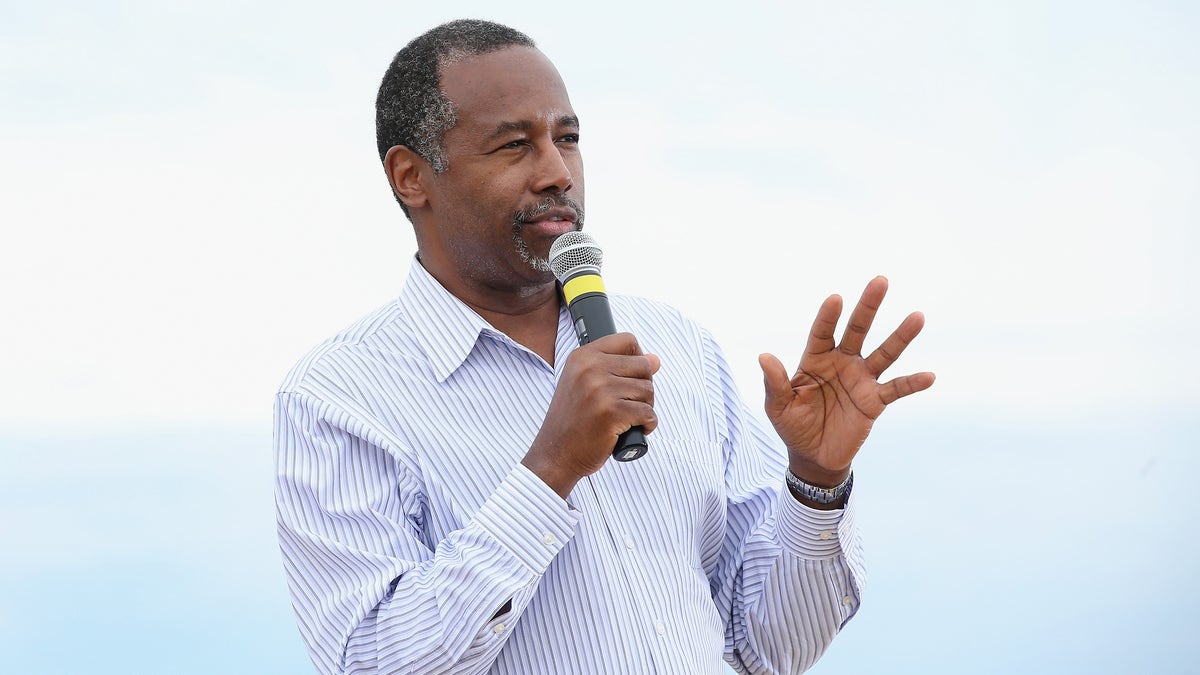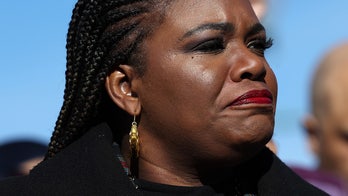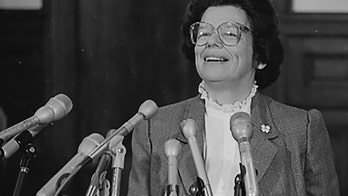
Republican presidential hopeful Dr. Ben Carson. (2015 Getty Images)
He is leading in the latest polls of GOP presidential candidates, yet as far as Ben Carson goes, he is the most enigmatic of all the top-ranking contenders in both major parties when it comes to Latinos and topics such as immigration.
Carson, a retired neurosurgeon who grew up in Detroit and lists his Florida home as his official residence now, has overtaken billionaire Donald Trump in a new national CBS News/New York Times poll of GOP likely voters.
This comes on the heels of an Iowa poll where Carson also beat out Trump, who had led polls of GOP voters for several months.
Unlike others – specifically Trump and Sen. Marco Rubio of Florida – on the top rungs of the GOP field, however, Carson has not grabbed headlines over his comments or views of Latinos and hot-button topics like immigration.
The issue of immigration, one of the most heated and debated in this election cycle, and of course in the 2012 presidential election, is not even mentioned on Carson’s campaign website.
Earlier this year, Carson said in a speech at the National Association of Latino Elected and Appointed Officials (NALEO) convention in Nevada that speaking about immigration to them was tantamount to pigeonholing, and said people of all ethnicities and races cared about a variety of issues, not just one.
“We’re allowing the purveyors of division to come into our midst,” said Carson, who graduated from Yale University, to the crowd. “Our strength lies upon our unity…We the American people are not each other’s enemies. It’s the people who try to divide us who are our enemies.”
Carson was the only GOP candidate to participate in the NALEO conference.
But overall, the soft-spoken candidate rarely has held events to court Latinos.
Over the summer, a South Carolina campaign stop that supposedly was a Latino outreach effort failed to attract Hispanics.
Political experts attributed the flop to poor planning by Carson’s campaign staff, as well as views that go against that of many Latino voters, if polls are any indication.
Some political experts think Carson’s scant attention to Latinos and issues that generate the most discussion in their community is by design. At this point in the election cycle, many GOP candidates are focused on being the favorite among conservatives, and accomplishing that, experts say, often means taking hardline positions on immigration and Obamacare.
Carson opposes President Barack Obama’s Affordable Care Act, which is favored by a majority of Latinos, and also opposes providing a path to legal status for undocumented immigrants living in the United States.
In an op-ed for the National Review last year, before he announced his candidacy, Carson argued for sealing the border, making undocumented immigrants register their status and giving them an opportunity to apply for guest worker visas from their homelands. He has vowed to completely seal the borders – north, south, east and west – “completely.”
At the NALEO conference, Carson said his view on sealing the borders was “not because I’m afraid of somebody from Honduras, but because I’m afraid of someone from Syria who wants to kill us.”
He opposes giving undocumented immigrants any break, saying it rewards law-breakers.
“Carson has said little to appeal to Latino voters and much that would alienate them if they were paying any attention,” said Louis DeSipio, a political science professor specializing in Latino studies at the University of California-Irvine. “This is a dilemma that Republicans face. Their early primary/caucus state have few Latino voters, so candidates seeking to break through in the early states have no incentive to position themselves to win Latino votes and many incentives to speak to more nativist voters.”
Cal Jillson, a political science professor at Southern Methodist University in Dallas, agrees.
“The Republican primary electorate is deeply opposed to illegal immigration and nervous about immigration more generally,” he said. “They favor small government, tax cuts, and balanced budgets, while Hispanics, who on average make much less than Anglos, need good public schools, access to affordable health care, and support during hard times.”
Jillson predicts that the GOP nominee will get less of the Latino vote in 2016 than the 27 percent of Mitt Romney got in 2012 — something that was seen as a key factor of his defeat to Obama, who got 71 percent of the voting bloc.
“Ben Carson, who has never held office and has no political record, has apparently decided it is best to say as little as possible and hope that Hispanic voters like his smile,” Jillson said.
But if Carson’s views on issues of importance to Latinos could land him in trouble down the road, it won’t be because he’s blaring them out in public.
He’s expressed them quietly, documenting his conservative, hardline stances for his conservative record, but keeping himself off the anti-Latino radar that Trump, by contrast, has remained a fixture in.
Rubio has made headlines with his varying views on immigration.
He was a key figure in the drafting of the bipartisan Senate comprehensive immigration reform bill that passed in 2013, but that stalled in the House.
Rubio’s outspokenness on behalf of the measure, which called for tightening border security as well as providing a path to legal status, drew fire from conservatives, who accused him of embracing “amnesty.”
Since then, he has backed off that message, instead pushing for immigration to be approached in a piecemeal way, not in a sweeping bill.
Carson’s little overt references to Latinos, and below-the-radar hardline comments on immigration, hardly have spared him controversy.
He made waves when he remarked that a Muslim should not be president, that he opposes abortion even in cases of rape, and made a comparison between abortion and slavery. (He’s also compared Obamacare to slavery.)
"Think about this," he told "Meet the Press." "During slavery – and I know that's one of those words you're not supposed to say, but I'm saying it – during slavery, a lot of the slave owners thought that they had the right to do whatever they wanted to that slave.”
Referring to the abortion-slavery comparison, Carson said, “Anything that they chose to do. And, you know, what if the abolitionist had said, you know, 'I don't believe in slavery. I think it's wrong. But you guys do whatever you want to do'? Where would we be?"




